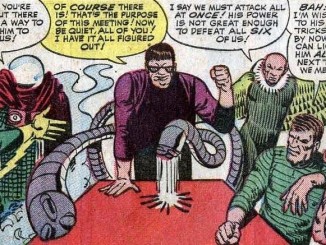
We originally reviewed director Alexander Payne’s The Holdovers as part of our coverage of this year’s Philadelphia Film Festival. It goes into wide release this weekend.
Christmas is a time of family and fellowship, friends and loved ones gathering together to celebrate the season. But for some, who may not have family and friends to gather with – either through their own choice, the choices of others or some other brutal reality – it is a time of anything but. Director Alexander Payne’s latest film, The Holdovers, takes three characters who have no one to spend the holidays with and puts them together in a bittersweet and often scathingly funny film.
The holidays have arrived for the students at Barton Academy, a prestigious Massachusetts boarding school. Well, for most of them. While a majority of his classmates are heading off campus to spend two weeks with their families, Angus Tully (Dominic Sessa) is stuck on campus as his mother has decided to take a much-delayed honeymoon with her new husband rather than spend the holidays with him. Overseeing Angus is his irascible Ancient History teacher Paul Hunham (Paul Giamatti), a family-less man who was looking forward to two weeks of reading mystery novels and not babysitting a sullen teen. Joining them on campus is Mary (Da’Vine Joy Randolph), the school’s dining hall manager, who recently lost her son in Vietnam. The three come together in what is an empathetic while often hilarious meditation on loneliness, the need for human connection and the unlikely familial-like bonds that can form between us.
Payne’s films often deal with characters that are just on the edge of society in terms of how they relate to others. Giamatti’s Hunham is an acerbic teacher who seemingly loves his school but can barely tolerate any of its students or most of his fellow faculty there. He seems to value his job as an educator and sees worth in it, it is just that he doubts that the sons of privilege that make up most of the student body are worth his time to teach. Sessa’s Angus is a child of divorce, feeling abandoned by his mother for her new husband. And it is hard not to be sympathetic to what Mary is going through. No parent should have to bury a child, and for her to have lost both her son and his father and to have no one who can relate to what she has been through is isolating in its own way. All three characters need human connection, whether they realize it or not.
Giamatti, reuniting with director Payne for the first time since 2004’s Sideways for which he won Best Actor at the Independent Spirit Awards, is turning in a performance of a lifetime here. To be fair, the actor has made a career out of playing sarcastic, misanthropic characters. But here, Payne, and a screenplay from former sitcom scribe David Hemingson, gives Giamatti some great dialogue, great moments and a great reasoning as to why Hunham is the way he is. And Giamatti makes the most of the opportunities. But for as great as Giamatti is, newcomer Sessa holds his own in every scene he has opposite the more seasoned actor, which is a good portion of the film. The only problem with the both of them being so good and dynamic in their roles, is that Randolph’s dining hall manager Mary gets sidelined at times.
Interestingly, Payne sets his tale in the mid-1970s, his first feature outside of whatever current year he was shooting his previous work. (To set the feel, the film opens with an old school MPAA ratings card before segueing into a period-feeling production company animated logo for distributor Focus Films. Payne also shot the film on 35mm film to get a very specific look naturally rather than through the manipulation of a digital video file in post-production.) Divorce was just starting to become a thing that affected families over the last ten years, but it wasn’t omnipresent enough that a character like Angus could have classmates in similar positions to talk to with. The film certainly benefits from the absence of cell phones and the internet. But whatever decade the film is set in, Payne reminds us of that universal truth about the necessity for human connection, a lesson that is always important to reiterate.



